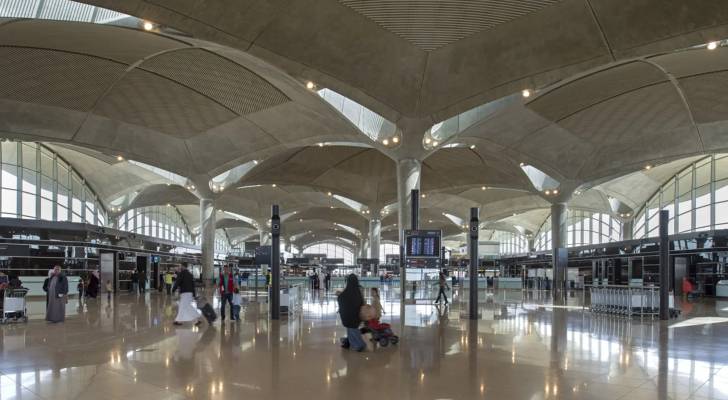Europe’s year of fundamental choices - By Ana Palacio, The Jordan Times
MADRID – This year was always going to be important for the European Union, given the start of a new EU Commission mandate, a relatively new European Parliament, and a change at the helm of the European Council. But recent developments, including the collapse of the German government, the beginning of coalition negotiations led by the far right in Austria, the end of Russian gas flows to the EU via Ukraine, and Donald Trump’s victory in the US presidential election, have raised the stakes significantly.
Moreover, Europe confronts a volatile geopolitical environment. Beyond the grinding war in Ukraine, a violent reconfiguration is underway in the Middle East, exemplified by the collapse of Bashar al-Assad’s regime in Syria and Israel’s military campaigns in Gaza, Lebanon, and beyond. The Sahel, too, is gripped by upheaval, with countries like Mali and Niger enduring military rule and intra-communal brutality. Nearby Sudan is in freefall, with widespread violence having led to economic collapse, mass displacement, and an escalating humanitarian crisis.
All these developments demand responses from the EU. Among other things, Europe must recalibrate its approach to Africa, coordinating with allies to deliver support that addresses development, security, and humanitarian imperatives. And it must provide increasing support to Ukraine, both to sustain the country’s resistance against Russia and to advance the Herculean reconstruction effort that is already underway.
Such efforts will be all the more important, and more complicated, with Trump in the White House. While it is impossible to say precisely what he will do once in office, his latest panic-inducing fixation seems to be taking control of Greenland, no one should count on the US’s commitment to support its allies. On the contrary, Trump’s promise to end the war in Ukraine immediately upon taking office augurs capitulation to Russia, underscoring the need for increased EU aid for Ukraine and rapid strengthening of Europe’s defense capacity.
The EU knows well that it must take greater responsibility for its own security: the theme of Poland’s six-month EU Council presidency, which began on January 1, is “Security, Europe!” But if this is to be more than a slogan, the EU will have to boost investment in research and development, pursue strategies to foster innovation, and enhance collaboration among member states.
Such initiatives can also bolster EU efforts to tackle declining economic competitiveness at a time when aging populations are straining public budgets and impeding productivity growth in many countries. Stimulating investment in advanced sectors such as artificial intelligence, defense, and green energy is essential, particularly given the additional economic strain on the EU implied by the import tariffs that Trump is threatening to introduce.
What Europe must not do is resort to indiscriminate protectionism, including against China. In fact, the EU needs a China strategy that prevents it from being swept into an all-encompassing confrontation and strikes a balance between maintaining mutually beneficial relations, preserving foundational alliances, and defending the international order from attempts to destabilise it.
But external developments are just part of the challenge. Internally, Europe is grappling with widespread democratic erosion. While Hungary stands at the vanguard of this trend, it is hardly alone: even France and Germany, the traditional engines of EU integration, appear to be at risk of democratic backsliding. Trump crony Elon Musk is not helping matters, as he backs far-right parties like Alternative für Deutschland (AfD).
There is also considerable disagreement among member states on a range of issues, from the trade deal with Mercosur, which was agreed in principle last month, to threat assessments regarding the Ukraine war. Whereas Poland remains adamant that the war must end with a return to the recognized borders, France is now urging Ukraine to engage in “realistic discussions on territorial issues.” Meanwhile, Slovakia’s Kremlin-friendly prime minister is threatening to cut financial support for Ukrainian refugees in his country.
EU enlargement is another source of tension. Since Russia’s full-scale invasion of Ukraine in 2022, the EU has opened accession talks with Bosnia and Herzegovina, Moldova, and Ukraine, and granted Georgia candidate-country status. But the hasty addition of new members would only undermine cohesion and compound decision-making inefficiencies. A clear, realistic methodology for accession based on objective criteria is badly needed, as is a sober assessment of whether each candidate can be integrated effectively into Europe’s structural framework.
In the meantime, practical measures and de facto agreements can deepen the EU’s ties with prospective member states and bolster their progress toward accession. Ukraine’s integration into the EU’s mobile-roaming network and trade agreements, and the synchronisation of its electricity grid with the Continental European Network, offer a useful model.
A final imperative for the EU in 2025 is to reform its institutional structures and decision-making processes. This must include a review of the ideologically-driven regulations contained in current legislation, the European Green Deal at the center of Ursula von der Leyen’s first mandate is a prime example, and efforts to improve transparency, accountability, and efficiency within European institutions, thereby enhancing their responsiveness and reliability. Fostering greater engagement with citizens through clear, open communication from Brussels, along with citizen-driven initiatives, would also help to strengthen the EU’s legitimacy and resilience. Progress on any of these fronts will require considerable political resolve from lawmakers in Brussels.
How the EU navigates this complex array of internal and external challenges over the next year will determine its future as a global actor. One hopes that pragmatism, unity, and long-term thinking prevail in 2025.
Ana Palacio, a former minister of foreign affairs of Spain and former senior vice president and general counsel of the World Bank Group, is a visiting lecturer at Georgetown University.
Latest News
Most Read Articles
- Safadi delivers letter from King to Lebanese president
- Tamkeen calls for improved grievance mechanisms for textile workers in Jordan
- Jordanian source refutes misleading report by Times of Israel on Gaza mobile bakery
- Europe’s year of fundamental choices - By Ana Palacio, The Jordan Times
- Gaza rescuers say 73 killed in Israeli strikes since ceasefire deal announced
- CBJ exempts individuals from fees paid through eFAWATEERcom
- Russia hopes Gaza ceasefire can lead to 'comprehensive' settlement
- Cyprus hails new access to US defence goods
- The Gaza genocide: The fall of Israel’s immunity - By Ramzy Baroud, The Jordan Times
- Cool weather expected across Jordan




